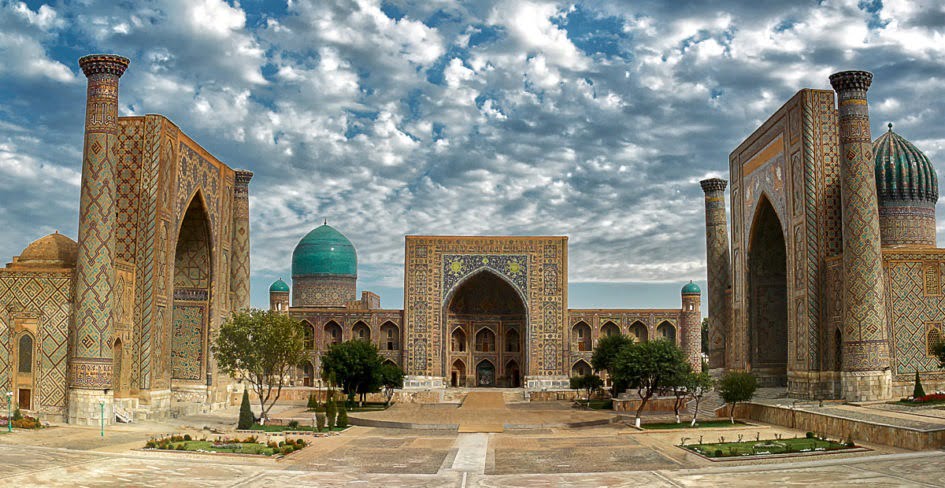
Uzbekistan dazzles with its main attractions, the icons of the Silk Road at Samarkand, Bukhara and Khiva. Gawk at the mosques, scale the minarets and maunder from mausoleum to madrassah to get a feel for the history of Islam outside of the Middle East, and the power of the Timurid empire. Then, wander through the bazaars: Uzbeks are traders and craftsmen.
If you have less interest in ancient monuments, but prefer to get to know people and their way of life today, Uzbekistan’s sanitised tourist cities can be a turn-off. In that case, take a dip into the countryside. Hunt for masters of craft in smaller towns, or disappear deep into the eastern desert or the southern highlands.
For most tourists, it is the famous monuments to the ruler’s power and glory that will dominate their opinion of Uzbekistan. For those who dare to venture off the tourist trail, a different side of Uzbekistan will open up.
Uzbek culture is rich, warm and dynamic, and quite different from the surrounding nomadic nations. You have not been to Uzbekistan if, after a big meal of greasy plov, you haven’t reclined on a topchan in the shade of a hugechinar tree, getting buzzed on liters of green chai, while discussing the finer points of life in your respective countries with old aksakals wearing tubeteika skull caps.
Samarkand, Bukhara and Khiva are names that echo with luster, but be honest with yourself: how much do you really care about medieval Islamic architecture? Let that be your guide in deciding how much time you want to spend in the Silk Road cities of Central Uzbekistan. When madrassah fatigue sets in, head for the mountains or the desert at Nuratau or Kyzylkum.
The Savitsky museum in Nukus and the corpse of the Aral Sea are the 2 main sights in Qaraqalpaqstan.
In Ferghana Valley, Margilan and Rishton are famous for their silk and ceramics and Kokand is worth a stop-over for its Silk Road monuments. Beyond these highlights, only slow travelers venture.
Likewise, the attractions of Uzbekistan’s rural south are overlooked by all but a tiny minority.
Trains are an easy and comfortable way to move between the big destinations of Tashkent, Samarkand and Bukhara. If you are travelling independently, booking in advance is still a hassle, though. To leave as quickly as possible, a shared taxi or minibus is a fast and cheap alternative. With a rare exception, (old and slow) buses should be avoided.
Flying is a time-saver between Tashkent and far-off Khiva and Termez, or possibly Andijan. Winter has little effect on transport in Uzbekistan, almost everywhere is accessible year-round.
If you are flying to Uzbekistan: both Tashkent and Samarkand receive international flights.
For cross-border transport, see Uzbekistan’s border crossings and the various city guides transport sections.
By Sher Karimov





